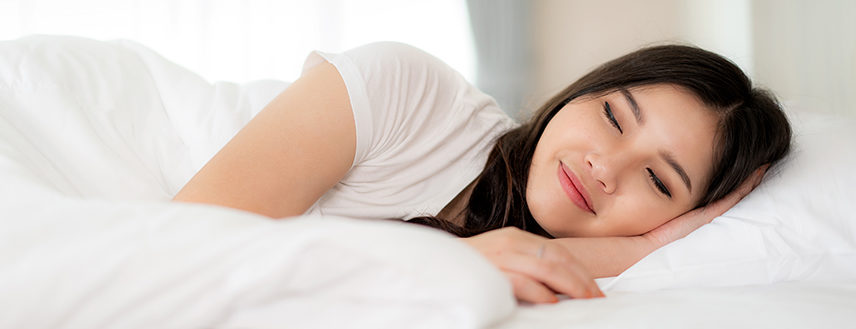
A recent study found that people who get less than seven hours of sleep a night are heavier, gain more weight over time and have increased difficulty losing weight. So if you’re looking to lose a few pounds, start with getting a good night’s sleep. Here are five ways sleep can help you lose weight:
- Burns More Calories – By getting a full night of sleep, you’ll have more energy, and your body will burn more calories, even when you’re not exercising. A study published in the American Journal of Clinical Nutrition found that the resting energy expenditure (calories burned while not moving) was five percent higher for those who got a full night’s sleep. After a meal, the same group burned 20 percent more calories than subjects who were sleep deprived.
- Reduces Bedtime Snacking – The later you stay up, the more likely you are to reach for that bedtime snack. You don’t need it and those extra calories add up quickly. According to a study from the University of Pennsylvania, you could gain up to two pounds a week from late-night snacking. Over the course of seven days, sleep restricted subjects gained more weight than their well-rested counterparts because they consumed 550 calories from 11pm-4am, while the other group was sound asleep.
- Promotes Healthier Grocery Shopping – You know you’re not supposed to grocery shop when you’re hungry – you never know what might end up in your cart! But, the same is also true of shopping when you’re tired. In a study published in the journal, Obesity, sleep deprived men bought nearly 1300 more calories in food than men who were well rested. And they weren’t hungry either, since all subjects were fed a standardized breakfast prior to shopping.
- Encourages Portion Control – A study in Sweden looked at the effects of sleep on portion control. Subjects participated in a computerized ideal portion size task. Those who were sleep deprived added more calories to their virtual plate than those who were well rested.
- Focuses Brain Behavior – When you’re sleep deprived, your brain suffers, especially the area that controls your inhibitions and behavior. When those areas are affected, you’re more likely to overeat and make poor food choices. A study from Columbia University found that the area of the brain that regulates pleasure-seeking behaviors was negatively impacted in sleep-deprived subjects. Since unhealthy food triggers that region more than healthy food, being tired increases your risk of reaching for junk food.

Leave a Reply